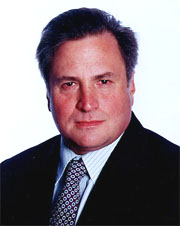 By Dick Morris December 31, 2003
Call it the ricochet effect. In the Clinton White House, we consciously used this theory to help the right dominate the Republican Party so that the centrists throughout America would vote to re-elect the Democratic president. Here's how it works. An incumbent president tends to catalyze opposite reactions among the moderates and the extremists in the opposition party. Because he is adopting policies which help the nation and echo the demands of the broad center, he attracts moderates in the other party. But as he pursues the core policies of his own party, he generally triggers greater hostility from the true believers on the other side. Thus, President Bill Clinton's policies of reforming welfare and balancing the budget attracted moderates among Independents and Republicans. But his position on core Democratic issues like gun control and abortion drove the right-wing extremists crazy. Similarly, President Bush's embrace of prescription-drug benefits for the elderly and his stalwart stand against terror lures the centrist Democrats and Independents. But his backing for the war in Iraq and the Patriot Act alienates the extreme left and whips them into a fine fury. Even the Reagan administration benefited by the ricochet theory. His tax cuts produced a feeling of "morning again in America" which gave him high ratings among the moderate voters - the so-called Reagan Democrats - who normally sided with the opposition. But his strong pro-life position and his budget cuts sharpened the animosity toward him among feminists and minorities. As the moderates leave the other party and move toward the incumbent president, the leftists of the Democratic Party or the GOP's rightists come increasingly to predominate in primaries. At the same time, their alienation and anger at the policies of the incumbent chief executive generate a new activism on the extremes of the opposition party which kindle increased flows of money and manpower into the minority party. The ricochet theory, in a sense, is the concomitant of triangulation. If one steals the other side's centrist issues, one becomes attractive to the moderates in the enemy camp. But because an incumbent stays faithful to the core issues of his own party (gun control, abortion, etc.) he generally drives the extreme members of the opposition crazier than ever. Because George W. Bush is attracting moderates with his forthright stand against terrorism, his willingness to go to war to defend our security, and his relatively compassionate social agenda, he is winning over Democrats and Independents who might once have voted against him. Those moderates who remain Democrats find themselves weakened by the defection of these moderates and become outvoted in the Democratic primaries. This phenomenon is precisely why Joseph Lieberman is losing to Howard Dean in the Democratic race for president. His constituency is voting for Bush and has left his party. But Bush's strong Republican stands on the war in Iraq, defense spending, intrusive measures to fight domestic terrorism, support for conservative judges and opposition to powerful environmental measures leads the Democratic left to oppose him in ever stronger terms. The increase in their vitriol, donations, activism, and primary election turnout that this anger generates swamps the outnumbered moderates and leads to the nomination of an extremist like Howard Dean as the party nominee. How does a party break this vicious cycle? Usually it takes two or three defeats before the party regains its senses and realizes that catering to its extremist elements only courts disaster. After a Barry Goldwater, it embraces a Richard Nixon. Recovering from the disaster of George McGovern, it nominates Jimmy Carter. But sometimes it takes repeated defeats - as with Mondale and Dukakis in the '80s - before a party recovers its senses and nominates a Clinton. It will be interesting to see how soon the Democrats wake up and realize that they can't let their party be hijacked by the left without writing off the general election. But the wake-up call is unlikely to come until after Bush is safely re-elected.
dmredding@aol.com Dick Morris was an adviser to Bill Clinton for 20 years. Morris is a political consultant, commentator and best selling author. Look for his newest book, "Power Plays" and his new book, "Off With Their Heads - Traitors, Crooks & Obstructionists In American Politics". Distributed by Cagle Cartoons, Inc. to subscribers for publication.
|
||
